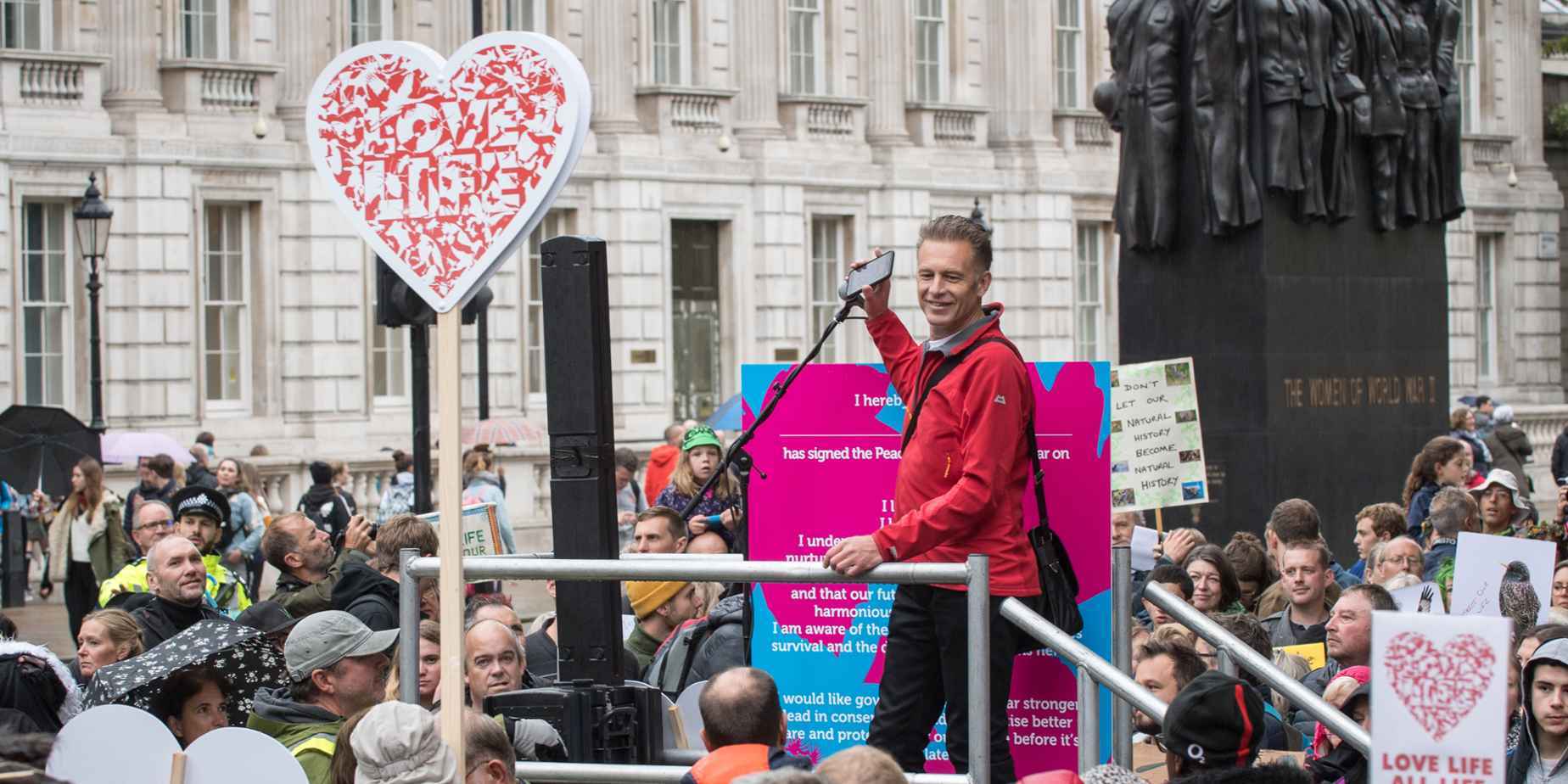From presenting the BBC’s Autumnwatch to publishing more than 10 books and publicly campaigning for wildlife protection - Chris is a passionate environmentalist who has championed nature for more than forty years.
We talked to Chris to discover what fuels his desire to protect the natural world, why he created the People’s Walk for Wildlife and his views on how the financial industry can tackle environmental challenges.
Can you tell us what ignites your passion for the natural world?
When I was a child I always had a deep affection of the natural world, I think it was the simple beauty of it and I loved the idea that individual organisms were so perfect.
As I have grown older I have found an enormous weight of guilt on my shoulders because I am part of a generation that has failed to act on protecting nature and now we’re struggling. We’ve known about the problems and developed solutions over such a long time. WWF has published a report this year saying 69% of the world’s wildlife has disappeared since 1970 - and I remember 1970 like it was yesterday. I was catching grass snakes, watching fox cubs, counting blackbirds in the pockets of greenery around my house.
I’ve turned that guilt into something positive. I’m 61 years old now and I’ve got to do as much as possible now quickly to make a difference and that’s what motivates me.
What did you learn from creating People’s Walk for Wildlife in 2018?
I put the People’s Walk for Wildlife on because I really wanted to bring all the environmental NGOs and affiliates together in one place to rub shoulders and get them to be more cohesive.
The message was quite clear – we all have commonality in our objectives and we are all passionate, we are all committed, but we’ve got to be more clever and more strategic. It also coincided with the launch of the People’s Manifesto for Wildlife, which we sent to every MP in the UK. The attack on nature is real and we’ve all seen it escalate since 2018 and we’ve all got to take action at this point. To the best of my knowledge we’ve not had a single response to the manifesto from our leaders and I can’t tell you that any of that good, informed advice was acted upon.
That’s one of the reasons we find ourselves planning another People’s Walk for Wildlife set to take place in Spring 2023.
You ended the latest BBC Autumnwatch with a poignant reminder that nature is changing, and every single living species really matters. What do you think will be the biggest impact of biodiversity loss on society?
We are dependent on ecosystem services on earth in terms of our survival. When it comes to the biggest impacts of biodiversity loss I think it will be food. We’re trashing the soil because of our farming methods, for example.
We are so disconnected from nature now, through everyday life, and from how we obtain food, we don’t recognise that it is nature that we are surviving on - and that’s very dangerous. It’s also a symbolistic thing – you cannot continue to dismember ecosystems and expect them to remain functional. The damage we’re doing today may not be visible for hundreds of years.
What role do you see for financial institutions in tackling climate and environmental challenges?
There are too many fossil fuels being burned, so one of the ways we can address that is by reducing our emissions. We can do that on a personal level, or we impact those companies which are releasing them on a far more macro level if we take away their funding. The pound in a person’s pocket is lobbying economic activism – what you choose to buy when you go to the supermarket influences what goes on the supermarket shelves.
But we also store money in banks and we invest it in pensions and I think financial institutions have an enormous ethical and moral responsibility to start withdrawing funding from those things which are very dangerous when it comes to the climate and biodiversity emergency.
I certainly don’t want my money going to fossil fuels, weapons, or any of those sorts of things. People are moving in that direction - they’re seeing and expecting that level of corporate responsibility.
How do you think Triodos Bank plays a role in delivering this change?
Banking is a big part of our lives, where we get our energy from is a big part of our lives, how we travel is another, how we are educated, how we eat – these are all very fundamental parts of our lives and when you see opportunities within those fundamental things then being able to take them is really good. It’s about being able to have that choice.
The fact that Triodos exists and people can actively make a choice to bank in that way can be incredibly empowering– and that is important because if you don’t get any form of glow, joy, empowerment or happiness then frankly you get desperation and desolation, disenfranchisement, and disenchanted!
I think it’s really important that people exercise that power of personal choice and they do feel good and want to tell people about it. We need that kind of self-empowerment and reassurance that we have the capacity – even as individuals – to make small differences and we equally recognise that if enough individuals make small differences they together make a larger, more meaningful difference.





Thanks for joining the conversation.
We've sent you an email - click on the link to publish your post.